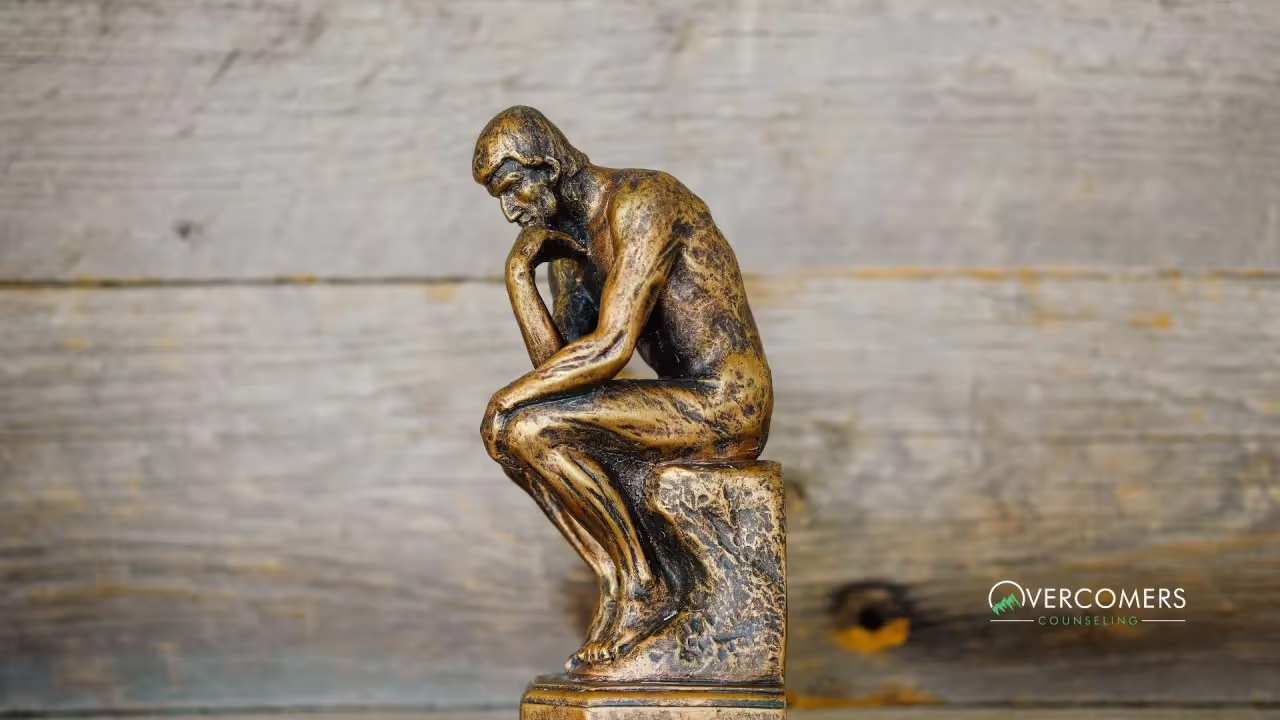Anxiety is a common mental health issue that affects individuals worldwide, characterized by feelings of worry, fear, or unease. It can manifest in various...

Anxiety is a common mental health issue that affects individuals worldwide, characterized by feelings of worry, fear, or unease.
It can manifest in various ways and can be influenced by a multitude of factors.
These factors can range from physical health conditions, environmental circumstances, to specific triggering stimuli.
Understanding these factors and their influence on anxiety is crucial for effective management and treatment.
This discussion aims to delve into these various aspects, shedding light on how they contribute to anxiety, and how recognizing them can help in dealing with this pervasive mental health concern.
Research has shown that genetics can play a significant role in predisposing individuals to anxiety disorders.
Generalized Anxiety Disorder (GAD), for instance, is considered a heritable condition with a genetic risk of approximately 30%.
The influence of genetics on anxiety has been supported by numerous studies, indicating a clear family connection to the condition.
It's crucial to understand that having a genetic predisposition doesn't necessarily mean an anxiety disorder will develop; the role of environmental factors is also significant.
Moreover, while anxiety has a genetic component, it is not a "genetic disease" in the way that certain health conditions are.
Stressful situations often serve as a trigger for anxiety, even if you're not consciously aware of the stress.
This can include anything from work deadlines and financial worries to relationship problems and health concerns.
The body's natural response to stress is known as the "fight or flight" response, which involves a range of physiological changes such as increased heart rate and blood pressure, heightened senses, and a surge of adrenaline.
While this response is designed to help us deal with immediate threats, prolonged or chronic stress can lead to an overactive stress response, which can manifest as anxiety.
It's also worth noting that stress and anxiety are closely linked and can form a vicious cycle - stress can trigger anxiety, and anxiety can make stress more difficult to handle.
Furthermore, everyone has a different stress threshold, and what may be a minor inconvenience for one person may be a major source of anxiety for another.
Therefore, it's crucial to identify and manage sources of stress in your life, as well as to develop effective coping strategies, in order to reduce the likelihood of experiencing anxiety.
Previous traumatic events can have a profound impact on an individual's mental health, often leading to recurring anxiety, even if the trauma occurred many years ago.
This is because trauma can disrupt the brain's natural stress response systems, causing them to become hyper-reactive or remain activated for prolonged periods.
This overstimulation can result in a state of constant anxiety or fear, known as post-traumatic stress disorder (PTSD).
Even in the absence of PTSD, past traumas can still influence how one reacts to stressful situations, causing heightened anxiety responses.
The memory of the traumatic event can also trigger anxiety symptoms when something in the present environment reminds the individual of the past trauma.
Therefore, it's crucial for individuals who have experienced trauma to seek professional help to process these experiences and develop coping strategies to manage any resulting anxiety.
Certain medications, according to various sources, can induce anxiety as a side effect.
This includes a variety of drugs ranging from over-the-counter treatments to prescription medications.
For instance, medicines with caffeine, corticosteroids, ADHD drugs, asthma medication, thyroid medicine, and seizure drugs have all been linked to the onset of anxiety symptoms.
Furthermore, substances such as alcohol, cocaine, LSD, and even some nonprescription decongestants and stimulants can lead to what is known as a substance-induced anxiety disorder.
Even commonly used medications like antihistamines, beta-blockers, and migraine medication can cause anxiety.
Thus, it's crucial for individuals and healthcare providers to consider potential anxiety-inducing side effects when choosing a course of treatment.

Chronic health conditions like high blood pressure, diabetes, heart disease, or even hormonal imbalances can significantly contribute to the development of anxiety disorders.
The constant worry and stress about managing these conditions, the impact on daily life, and the fear of potential complications can lead to increased levels of anxiety.
Additionally, the physiological changes that occur in the body due to such illnesses can also directly influence mood and anxiety levels.
For instance, high blood pressure can cause feelings of anxiety by increasing heart rate, causing shortness of breath, or triggering other symptoms that a person may associate with panic or danger.
Similarly, the fluctuation of blood sugar levels in diabetes can mimic or trigger anxiety symptoms.
Therefore, individuals with chronic health conditions need to maintain regular communication with their healthcare providers, manage their conditions effectively, and seek mental health support when needed.
Environmental factors play a significant role in the development and progression of anxiety disorders.
Living or working in high-stress environments can lead to chronic feelings of anxiety.
This could include environments where individuals constantly face intense pressure, unpredictable challenges, or even hostility.
For instance, a highly competitive workplace, an unstable home environment, or living in a high-crime neighborhood can all contribute to heightened anxiety.
These situations can cause constant worry, fear, and stress, which over time can manifest as an anxiety disorder.
Furthermore, exposure to environmental stressors such as pollution, noise, and overcrowding can also exacerbate feelings of anxiety.
It's crucial to recognize these environmental contributors to anxiety and, when possible, make changes to reduce exposure to these stressors or seek professional help to develop coping strategies.
Specific stimuli such as a particular conversation, place, or smell can trigger sudden feelings of anxiety, even when the connection isn't immediately apparent.
This is often linked to associative memories or experiences that might have been stressful, traumatic, or anxiety-inducing in the past.
For example, the smell of a specific perfume might trigger anxiety because it subconsciously reminds you of a stressful period in your life, or a specific location might bring on feelings of unease because it's associated with a past traumatic event.
These triggers can provoke a strong emotional response, leading to sudden onset of anxiety symptoms like rapid heartbeat, sweating, or feelings of panic.
Understanding these personal triggers and their origins is a critical step toward managing anxiety effectively.
Working with a mental health professional can be particularly helpful in identifying these triggers and developing strategies to cope when they arise.
In conclusion, anxiety can be influenced by a variety of factors including physical health issues, environmental conditions, and specific triggering stimuli.
Chronic health conditions like high blood pressure or diabetes can lead to persistent worry about the illness and its management, thereby contributing to anxiety.
Similarly, high-stress environments can create a constant state of tension and fear, exacerbating feelings of anxiety.
Lastly, specific stimuli linked to past stressful or traumatic experiences can trigger sudden bouts of anxiety.
Understanding these different factors is crucial in managing anxiety effectively.
It's important to remember that seeking professional help is often key in this process, as mental health professionals can provide tools and strategies to cope with these triggers and reduce overall anxiety levels.
Yes, Medicaid provides insurance coverage for therapy services specifically designed to help individuals struggling with anxiety, depression, and other mental health conditions.
It's important that you feel comfortable discussing personal matters with your therapist in order to open up and get more out of therapy sessions; therefore finding someone who meets certain criteria like experience level, expertise areas, and personality is key when selecting a therapist who can give meaningful feedback about how best handle issues related to anxiety or other mental health concerns.
Ignoring anxiety can exacerbate symptoms and make it more challenging to manage over time. This can result in a negative impact on your personal, professional, and social life, leading to feelings of isolation and even depression.
Other activities which have been found helpful in reducing both immediate feelings of anxiousness and long-term anxieties associated with chronic disorders include yoga, journaling, nature walks, art therapy, volunteering, and other low-stress activities. Additionally, developing a healthy lifestyle incorporating adequate sleep, physical activity, and nutritious meals can help reduce overall stress levels.
The duration of anxiety counseling varies for each individual, depending on the severity of their anxiety and their progress in therapy. Our therapists will regularly assess your progress and adjust your treatment plan as needed.
Addressing anxiety is crucial because it can significantly impact your quality of life and overall well-being. Left untreated, anxiety can lead to more severe mental health issues, relationship problems, and difficulty functioning in daily life.